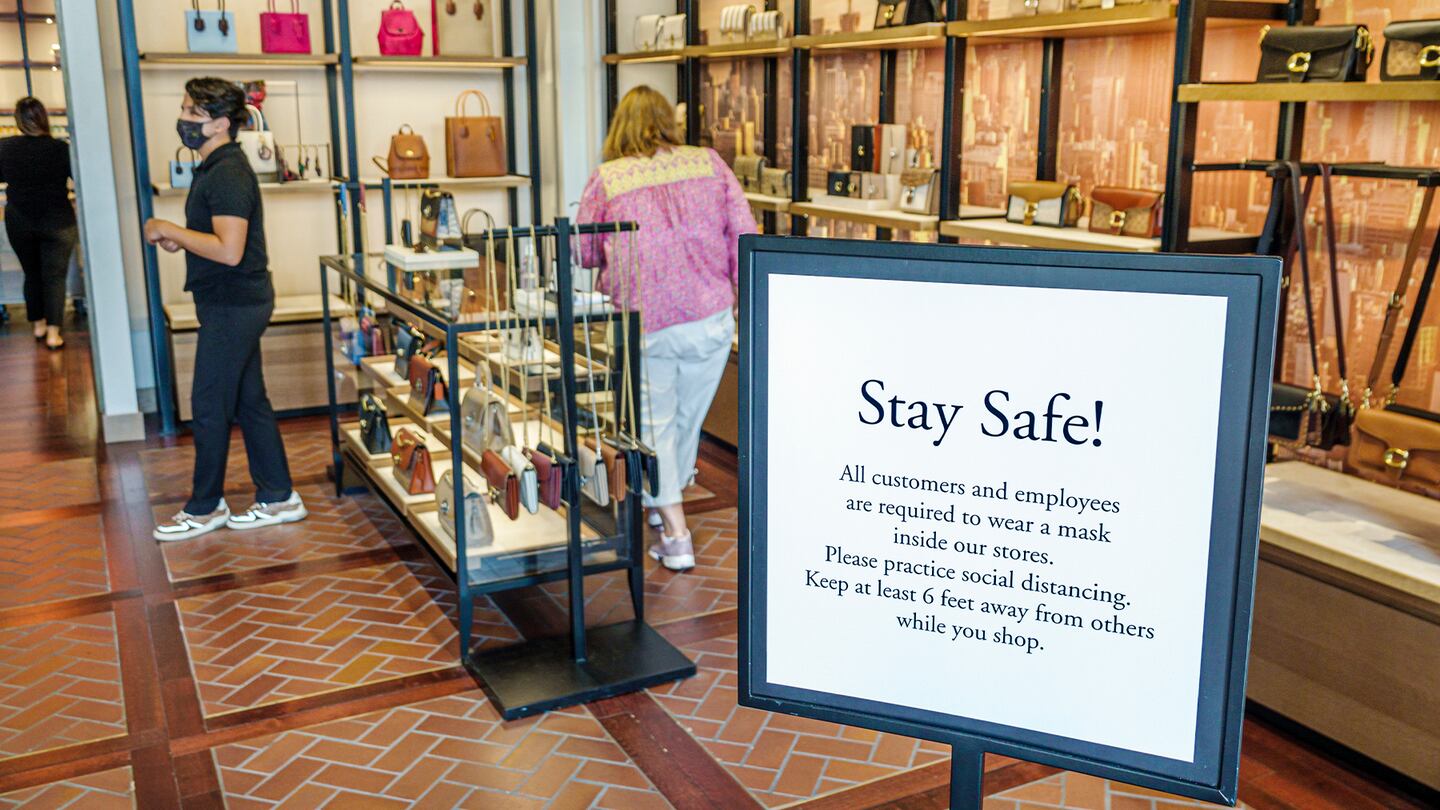
The Business of Fashion
Agenda-setting intelligence, analysis and advice for the global fashion community.

Agenda-setting intelligence, analysis and advice for the global fashion community.

KEY INSIGHTS
True Religion has long operated by retail’s golden rule: the customer is always right. But as shoppers’ behaviour has worsened during the pandemic, the denim brand has made some modifications to that policy.
For starters, employees will have more leeway to “speak back” when confronted by an abusive customer, said Theresa Watts, True Religion’s senior vice president of human resources, diversity, equity and inclusion.
“We’ve had cases where the customer has thrown jeans and threatened an employee,” Watts said. “We’ve now said … ‘you don’t have to accept violence.’ We will side with the employee in these incidents.”
ADVERTISEMENT
True Religion isn’t the only retailer rethinking how its employees and customers interact. Service industry workers have always contended with disgruntled patrons, but companies and employees say the problem has gotten worse as the pandemic has dragged on.
Experts point to stressed out customers, low staffing levels and product shortages to explain the uptick in abuse. In November, the Retail, Wholesale and Department Store Union sounded the alarm on rising instances of retail store worker abuse, urging holiday shoppers “to treat workers with dignity and respect” amid supply-chain issues. This month, Australia’s National Retail Association called on the country’s government to address “mass-scale workplace abuse of retail workers.” Last week, authorities in Scotland said they’re investigating 285 incidents of abuse of retail staff that occurred over a three-month period late last year.
It’s a tricky problem to solve. Retailers can’t turn their stores into police states that also sell sneakers. Nor can they ignore the problem; many are already struggling to fully staff their stores, and it’s harder to hire for jobs that involve dealing with an endless parade of angry, rude customers.
“No one wants to come to work to be assaulted or infected by customers,” said Jessica Ramirez, a retail research analyst with Jane Hali & Associates. “But, people are asking ‘What is being a store associate bringing to me? What is the benefit?’’”
Safety
Retailers can take steps to lower the odds of an enraged customer lashing out. Clear signage regarding masks puts less of an onus on employees to enforce the rules, a frequent source of pandemic-era tension. In stores that have security personnel, it should be their job, rather than the sales staff’s, to monitor mask wearing and other Covid protocols.
“You can’t expect your sales associates to be your security organisation,” said Mark Cohen, director of retail studies at Columbia Business School.
Low staffing levels is making the problem worse: first by hurting the overall customer experience, making flare-ups more likely, and second by leaving employees without backup when trouble comes.
ADVERTISEMENT
“There’s been times when there’s only three people in the building: you literally have one cashier, another [associate] is helping someone and another [associate] goes to the back to grab a product,” said Becca Hernandez, an assistant manager at an athleisure store in Austin, Texas.
Hernandez said having more staff working in the morning, when it’s busiest, and fewer in the quieter evenings could create a more pleasant environment for everyone.
Empathy
Providing a safe work environment is table stakes and most companies will need to do much more to keep store employees happy.
“Covid has always been an economic, social and health issue and the companies that are doing it the best are addressing those three areas in all of their policies,” said Matt Katz, a managing partner at business consultancy SSA & Company and head of its Retail & Consumer Packaged Goods and Private Equity practices.
Whistleblower hotlines, health care benefits and mental health resources that are routine in many offices should all be extended to store workers, Watts said. True Religion introduced a hotline last year that has helped tip executives off to issues ranging from “too many boxes at the back of a store” to more significant personnel matters, she said.
“I’m also making sure that each one of my team members gives out their cell phone numbers so that store employees can call them directly and immediately if there are any issues,” Watts said.
Community
ADVERTISEMENT
Understaffed stores can create a cycle of worsening conditions.
Many retail workers who had once found motivation in the camaraderie among their teams are instead grappling with overwork when they’re on the clock and “guilt” when they’re not, said Ramirez.
“I’ve heard from friends in retail who are worried about going to the doctor when they’re sick with non-Covid ailments because they don’t want to call out and leave their already [overworked] colleagues on the hook,” she said.
Hernandez said she spends much of her day on the floor servicing customers and stocking shelves rather than actively recruiting new hires or giving feedback to associates.
“Retail has always been about human interactions and that interaction is important for the associate,” said Katz. “Friendships and the camaraderie and the competitiveness of store associates is what drives retail success.”
A spate of “smash and grab” robberies and similar organised theft incidents have dealt the latest blow to retailers looking to staff up at a critical time.
Employee demands for unconventional schedules are here to stay and companies will need to think outside the box to make them work.

Sheena Butler-Young is Senior Correspondent at The Business of Fashion. She is based in New York and covers workplace, talent and issues surrounding diversity and inclusion.
To provide actionable insights and inspiration on how fashion and retail industries can further embed diversity, equity and inclusion in the workplace and business strategies today, BoF Careers co-hosted a panel discussion with The Outsiders Perspective. Now, BoF shares key learnings from the panel.
Discover the most exciting career opportunities now available on BoF Careers — including jobs from Tapestry, Alexander McQueen and Toteme.
A US regulator has banned most uses of the clauses, which started as a way for fashion companies to prevent senior executives from walking off with trade secrets, but have become a standard retention tool.
Check out this week’s new partners and openings on BoF Careers, the global marketplace for fashion talent.